#plaidoyer
Text
Plaidoyer - Daroca Mikael

La Police répressive
Gangrénée de racisme
La violence systémique
Inflation d ’ homicides.
Des armes de guerre
Interventions musclées
Rebattre les cartes
Réflexion n ’ existe pas.
Blocage syndical Politique
Vaste boulet sécuritaire.
*
Vos papiers.
Agenda des gens
Sentiment de faire
De remplir journée
Au faciès de peur.
Gamme de l ’ utilité
D un pouvoir social
Obsession est virale
Névroses de société.
*
Gâchis.
À bout portant
Amplifie la colère
Iimmense desastre
Erreurs du passé.
Sirènes de crise
Soif de vengeance
Retisser des liens
La lucidité explosive.
*
D ’ urgence.
Plongée de volonté
Tisse diverses actions
Lumière des abandons
De vivante sensualité.
Des rêves déterminés
De pulsion musculaire
Une méthode éveillée
Dessine des résultats.
Read the full article
2 notes
·
View notes
Photo

HISTOIRE/ACTUALITÉ | Plaidoyer pour le respect du repos dominical au début du XXe siècle ➽ http://bit.ly/Repos-Dimanche S’insurgeant en 1904 contre les entorses faites au repos dominical par d’avides commerçants, le directeur des "Annales politiques et littéraires" nous livre un vibrant et piquant plaidoyer pour le respect de cette trop courte période de quiétude et de béatitude, mais encourage cependant vivement l’ouverture des lieux de distraction et d’instruction
3 notes
·
View notes
Text
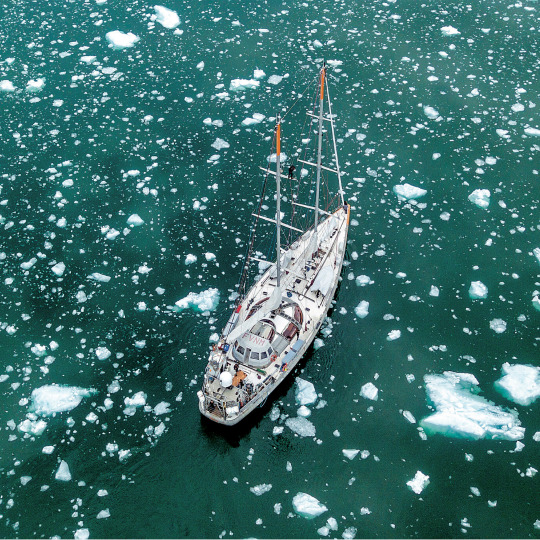

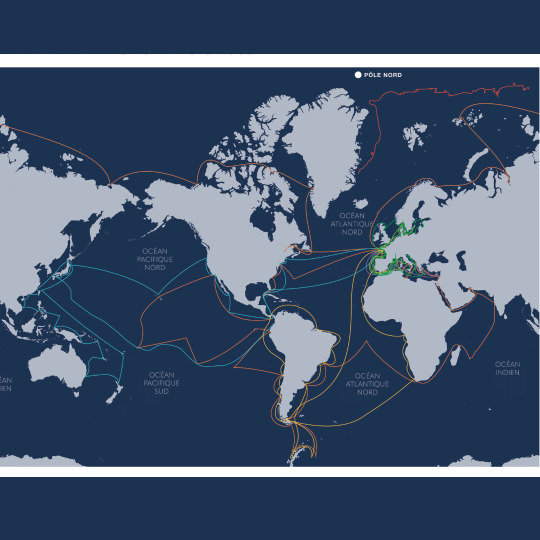

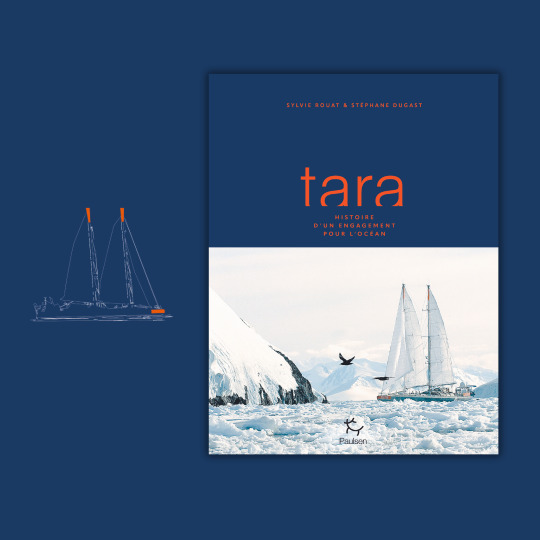
📌 [LIVRE] #VendrediLecture ⛵« 36 mètres de long, 10 mètres de large, et un mât culminant à 27 mètres ; une coque arrondie conçue à la fois pour pouvoir traverser les océans et être prise dans les glaces ; deux dérives remontant entièrement afin de naviguer avec un très faible tirant d’eau... Dès ses origines, la goélette Tara a eu l’âme exploratrice. Et un profil pas comme les autres. Une « sacrée gueule », un « bateau de l’espace », un « sous-marin avec des voiles », selon (…) »
📚 Extrait du livre « Tara : histoire d’un engagement pour l’océan » que j'ai co-écrit avec Sylvie Rouat.
🔎 Un ouvrage paru aux Éditions Paulsen et actuellement disponible en librairie. Avec le soutien de la Fondation Tara Océan.
En savoir + 👉 https://urlr.me/7xjbR
#livres#mer#océan#sciences#diplomatie#plaidoyer#pédagogie#stéphanedugast#bateau#saga#tara#taraocéan#biographie#engagement#histoire#20ans#20anstara
0 notes
Text
Une femme debout
Dans son nouveau roman, Catherine Bardon met en scène une femme au destin exceptionnel. Sonia Pierre aura lutté toute sa vie pour les Haïtiens qui ont émigré en République Dominicaine et qui étaient réduits à l’esclavage, ou presque.
En deux mots
Sonia est née en République Dominicaine où sont parents, venus d’Haïti, étaient venus chercher de quoi faire vivre leur famille. Dès son plus jeune âge la fille, très douée, va prendre fait et cause pour cette diaspora et s’engager pour améliorer la condition de tous ces gens discriminés. Un combat d’une vie marqué de nombreux échecs et d’une brillante reconnaissance.
Ma…

View On WordPress
#Amour#avocate#émigration#études#catastrophe#Cuba#Droits de l’homme#engagement#Esclavage#exil#Famille#Femme#fraternité#grève#Haïti#Humanité#injustice#migrants#Mort#plaidoyer#quête#république dominicaine#reconnaissance#revendications#séisme#solidarité#Sonia Pierre#tremblement de terre#vie de couple
0 notes
Text
Socando a baixinha gostosa
Rough Anal Squirt Fuck
Fast Nail Tapping ASMR
Seductive Tranny Shows Pretty Face And Big Cock
Muscular mature gay hammers young gay ass vigorously
ANALIZED - Anal Loving Jasmine Black gets her ASS Rocked by a BWC
Chilena caliente le gusta mi pico
She loves it doggystyle
Perfect Cameltoe Brunette Babe In Tight Lycra Spandex Leggings
Sabrina Sabrok dick reader sexy witch halloween
#trichotomism#footslogs#tippling#snowthrower#satisfactive#langsyne#glycans#nettles#Gatewood#Zoroaster#sense-confounding#underproposition#tubercularise#clanjamfrey#artemisic#anticonfederative#bewearied#plaidoyer#interconnect#waffles
1 note
·
View note
Text
Financement endogène de la Santé sexuelle et reproductive des Ados et jeunes: SOS/JD fait le plaidoyer auprès des délégations spéciales des communes
Financement endogène de la Santé sexuelle et reproductive des Ados et jeunes: SOS/JD fait le plaidoyer auprès des délégations spéciales des communes
L’association « SOS jeunesse et défis » (SOS/JD) a rencontré, le vendredi 7 octobre 2022 à Ouagadougou, des présidents de délégations spéciales de communes afin de plaider pour l’intégration des activités du Plan national de la planification familiale (PNPF) 2021-2025 dédiées aux adolescents et jeunes dans leurs Plans communaux de développement (PCD).
Mobiliser plus de financement…
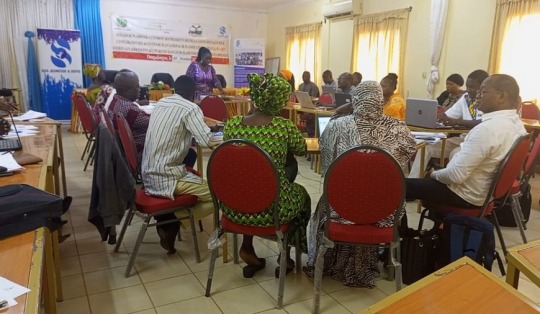
View On WordPress
#Ados_et_jeunes#communes 10 septembre 2022#délégations_spéciales#Financement_endogène#plaidoyer#Santé_sexuelle_et_reproductive#SOS_JD
0 notes
Text
Plan d’action mondial de santé publique contre la démence 2017-2025 | France Alzheimer
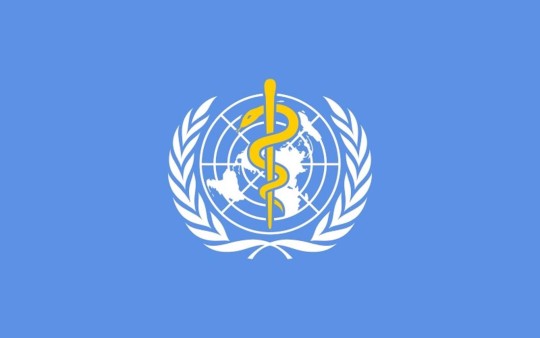
📣 « La « démence » est la 7ème cause de décès et l’une des principales causes d’invalidité dans le monde, mais elle suscite souvent une attention politique limitée. »
👉 En mai 2017, l’Organisation mondiale de la Santé (World Health Organization) a lancé son 𝙋𝙡𝙖𝙣 𝙙’𝙖𝙘𝙩𝙞𝙤𝙣 𝙢𝙤𝙣𝙙𝙞𝙖𝙡 𝙙𝙚 𝙨𝙖𝙣𝙩𝙚́ 𝙥𝙪𝙗𝙡𝙞��𝙪𝙚 𝙘𝙤𝙣𝙩𝙧𝙚 𝙡𝙖 𝙙𝙚́𝙢𝙚𝙣𝙘𝙚 𝟮𝟬𝟭𝟳-𝟮𝟬𝟮𝟱.
Pour faire le point sur le déploiement de ce Plan et le positionnement de la France en particulier, notre association a posé 4 questions au Docteur Tarun DUA, du Département de santé mentale et de toxicomanie de l’OMS.
1 note
·
View note
Text
Volontaire : quel statut ?
Facilitation visuelle pour une journée d'étude du 3 juin 2022 sur le statut de volontaire pour la Fédération francophone des associations de patients et de proches et le porte-parole des usagers des services de santé.
[et_pb_section fb_built=”1″ theme_builder_area=”post_content” _builder_version=”4.17.4″ _module_preset=”default”][et_pb_row _builder_version=”4.17.4″ _module_preset=”default” theme_builder_area=”post_content”][et_pb_column _builder_version=”4.17.4″ _module_preset=”default” type=”4_4″ theme_builder_area=”post_content”][et_pb_text _builder_version=”4.17.4″ _module_preset=”default”…
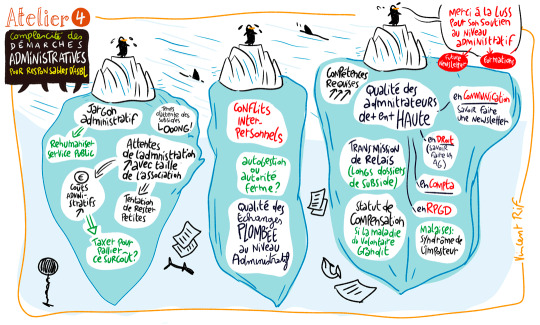
View On WordPress
0 notes
Text
COUP DE GUEULE : Un Plaidoyer Enflammé de Jay-Z pour la Reconnaissance de Beyoncé aux Grammy Awards
Dimanche dernier, lors de la cérémonie des Grammy Awards, Jay-Z a reçu un prix honorifique saluant l’ensemble de sa carrière. Cependant, au lieu de baigner dans la gloire personnelle, le rappeur et producteur a saisi l’occasion pour défendre vigoureusement son épouse, Beyoncé.
Alors que sa fille, Blue Ivy, illuminait la scène, Beyoncé préférait rester dans l’ombre du public, vêtue d’une tenue de…

View On WordPress
1 note
·
View note
Text
Le RODER Bénin outille ses membres et donne de la voix en faveur des énergies renouvelables
Dans le cadre de son engagement continu pour le développement des énergies renouvelables au Bénin, le Réseau des Organisations pour le Développement des Energies Renouvelables (RODER) a réuni ses membres lors d’une rencontre significative le vendredi 1er décembre 2023 à la Direction Générale des Ressources Énergétiques (DGRE) à Cotonou.
L’objectif principal était de renforcer les connaissances…
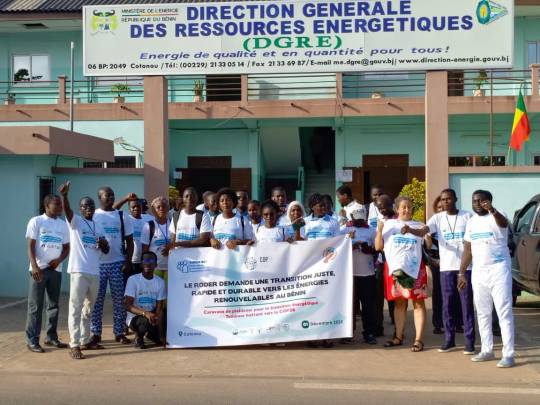
View On WordPress
#Association Bénin Energie#Biodigesteur#Biogaz#Campagne de plaidoyer#COP28#Energie Renouvelable#Energies Durables#Journal Santé Environnement#JVE Bénin ONG#Lobbying#Ministère du Cadre de Vie et du Développement Durable#ONG Save Our Planet#ReAgro ONG#RODER#RODER Bénin
0 notes
Text
Un document de plaidoyer des jeunes remis à la représentante spéciale adjointe du secrétaire général de l'ONU
Un document de plaidoyer des jeunes remis à la représentante spéciale adjointe du secrétaire général de l'ONU.-#Juno7 #J7sep2022
Un document de plaidoyer des jeunes pour la démocratie remis à la représentante spéciale adjointe du Secrétaire général des Nations Unies.
Lors d’une rencontre organisée le 25 août 2022 dans le cadre d’un dialogue interactif entre les Nations-Unies et des jeunes autour des actions majeures en soutien à une plus grande appropriation nationale des résolutions pertinentes de l’ONU sur la question de…
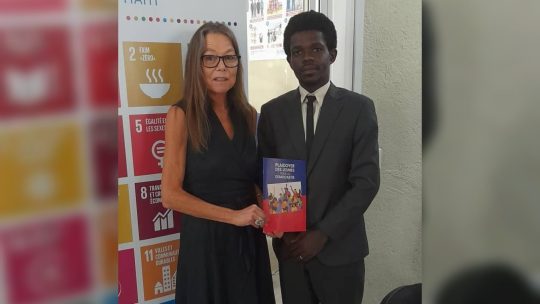
View On WordPress
0 notes
Text
Avec sa chanson, La Corrida" sortie en 1994, Francis Cabrel s’inscrit dans la lutte anti-corrida. Dans ce subtil plaidoyer contre la tauromachie, Cabrel se met à la place d’un taureau et lui donne la parole pour dénoncer l’absurdité et la cruauté de la corrida. Ainsi le personnage central de la chanson, le "protagoniste", le narrateur, n’est pas un homme, mais le taureau qui doit faire face au toréador et à la foule réunie pour le voir se faire tuer dans l’arène. "Je ne pensais pas qu’on pouvait autant s’amuser autour d’une tombe".
Il décrit tout ce qui s’y passe, de l’attente dans le couloir noir à la mort tout en passant par les diverses tortures subies par l’animal. Il entonne avec force et ironie un refrain devenu mythique, "Est-ce que ce monde est sérieux ?".
Par cette phrase, Francis Cabrel cherche à nous faire prendre conscience de la mesquinerie et de la lâcheté qui règne lors d’une corrida.
Cette chanson est dans tous les esprits des militants anti-tauromachie et devient leur hymne...
Merci Monsieur Cabrel...🙏

22 notes
·
View notes
Text
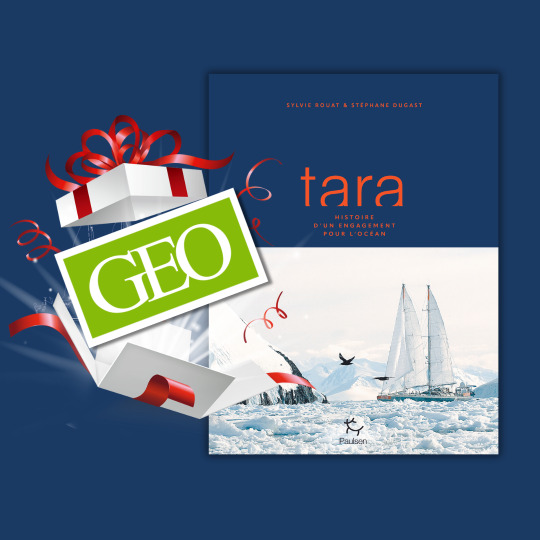
📌 [ÉCHO] Chouette initiative ! Notre livre « Tara : histoire d’un engagement pour l’océan » paru aux Éditions Paulsen est dans la sélection des idées cadeaux de Noël 🎄🎁🎅 de la rédaction du magazine GEO France.
👉 https://urlz.fr/p09W
#Livres#editionspaulsen#beauxlivres#mer#océan#sciences#diplomatie#plaidoyer#pédagogie#stéphanedugast#VendrediLecture
0 notes
Text

Autun. Automne 1908. Lucien Grandier, instituteur et père de famille sans histoires, est-il possédé ? Telle est l’épineuse question qu’il se propose d’étudier lui-même. Car deux démons contraires et batailleurs semblent avoir élu domicile dans sa boîte crânienne changée en tribunal infernal où s’entrechoquent les plus violents réquisitoires, les plaidoyers les plus enflammés. Armé de sa plume comme d’un scalpel, notre enquêteur se lance dans une manière de journal aux relents méphitiques dont il sera tour à tour le scripteur infatigable et le spectateur ébloui. Où il entreprend de disséquer ses ténèbres. D’inciser ses plus innommables secrets. D’exorciser, par l��écriture, cette étrange possession — afin de reprendre possession de soi-même. Commençons par apprendre aux enfants à ne pas penser —car la pensée est une maladie qui dévore l’homme : tel pourrait être le noir enseignement de ce carnet de maroquin rouge que Lucien l’invocateur confiera à sa femme juste avant de mourir. Sa dernière volonté ? Offrir à ses lecteurs accidentels le livre le plus tourmenté jamais écrit. Le plus inavouable. Peut-être aussi le plus universel. C’est à leurs risques et périls qu’ils en tourneront les pages venimeuses. Grimoire maléfique, odyssée psychologique, laboratoire littéraire, La Tour et la Plaine est avant tout le récit d’une traque : celle de nos instincts dévorateurs. Thomas Clavel, professeur de lettres, est l’auteur de trois romans, Un traître mot, Hôtel Beauregard, Le jardin des femmes perdues, tous parus aux éditions de la Nouvelle Librairie.
4 notes
·
View notes
Text
Almost fifty years ago, the philosopher and—because he was first and foremost a philosopher—theorist of international relations, Raymond Aron, wrote a book (1977) with the ironic title Plaidoyer pour une Europe décadente (A Plea for a Decadent Europe). Let me reassure my readers: neither Aron nor I ever embraced an Oswald Spengler-style theory of the decadence of nations and peoples. Neither he nor I were inclined to sing the funeral hymn of a past forever more luminous and intelligent than our present. Neither he nor I are inclined to believe that mankind has become more cretinous over the centuries and suddenly incapable of thought. What we say about the mass of our contemporaries also applies to politicians: no doubt there are few great figures, but it remains unproven that there were more of them before.
What appears today as a form of cretinism in foreign policy must be analyzed in its specificity and radicality. In the end, it can only be illuminated in relation to the present, and not by comparison with past references. An immediate clarification is in order: highly intelligent leaders have been able to make catastrophic foreign policy decisions; politicians who were no less intelligent have sometimes embraced detestable causes. Less subtle thinkers have sometimes been clear and straightforward in expressing the principles they have opposed to criminal regimes.
The question has also resurfaced because Putin has been constantly talking about the supposed decadence of the West ever since he came to power. Admittedly, this rhetoric is aimed above all at the far-right audience in the West, a few credulous Russians dumbed down by the propaganda of the Moscow patriarchate and the most vulgar figures on state television. It is in no way intended to be believed by the majority of Europeans and Americans. This narrative plays on confusion by establishing a link between feminism, the rights of LGBT people, the defense of human rights and the “decadence” of Western civilization characterized by its softness and irresolution. But as much as the first dimension of this discourse is purely ideological and merely embroiders an old-fashioned simplified image-cliché—that of the delights of Capua or the alleged fall of the Roman Empire due to the existence of dissolute morals, which was also played on by Pétain to explain, in an equally historically false manner, the French debacle of 1940—Putin knows he’s hitting a nerve.
Putin has been scoring points for 22 years, and perhaps even now, because the democracies have been unwilling to arm and retaliate. He understands perfectly well that there’s a self-fulfilling prophecy dimension to what he's saying, not to himself, but to his enemy. Except, of course, that this is not due to any corruption of morals, but of intelligence. We may rightly criticize the lack of courage, morality and empathy of Western leaders and their advisors, and sometimes their corruption, but that’s not the main issue: it’s their cretinism, sometimes, and their inability to think against the backdrop of catastrophe, always.
The race to the abyss
The episode of the blocking of American aid by the Senate, beyond the absolute shame represented by the complicity of certain American senators with the Kremlin, sheds a harsh light on this dimension of corruption of a part of the American political class, translates first and foremost something literally incomprehensible. It’s quite simple: if the United States stops giving Ukraine military aid, it won’t be able to keep up the fight for long. Europe, which is far from having grasped the scale of what a Ukrainian defeat would represent, has not taken the necessary precautionary measures to be able to replace the United States, even if only partially and for a few months. For the past two years, its budgetary efforts have remained limited in most countries. If we dare to look at the reality of the situation, the budgetary amounts allocated to Ukraine, whether for civilian or military purposes, represent the thickness of the line in relation to the total expenditure of each European state, whether direct or earmarked for a European fund. Only four EU countries (the three Baltic States and Denmark) and Norway devote more than 1% of GDP to Ukraine. Even if American financial, humanitarian and military aid to Ukraine is fundamental in terms of volume—it is slightly less than that of all EU countries, but its military component is stronger—and can impress by its amount ($75,4 billion from January 24, 2022 to October 31, 2023, or 0.32% of GDP), it pales in comparison with the budget of the world’s leading power ($812 billion devoted to defense in 2022 and $6270 billion in federal spending in 2023). We’re certainly a long way from reaching the amounts the United States spent on the Second World War between 1941 and 1945. We are a long way from transforming the economies of the Alliance countries into war economies. The Allies continue to pretend that the Russian threat is not existential for them.
In short, neither Europe nor the United States is up to the challenge. Their leaders have failed to understand that Washington will need a 1941 moment in order to aim for a 1945 moment. Without the comparison being historically valid for them, European governments still refuse to understand that it is the comparison with the Second World War that is needed, not to compare the USSR and Russia, but Putin’s Moscow and Hitler’s Berlin.
Indeed, Putin has recently begun to sing the tune of victory and, as if to show that he is not afraid of escalating threats, he has explicitly directed his new threats at Latvia, using the same rhetoric about threatened Russian-speaking minorities that he had previously used for both Ukraine and Estonia. It’s worth asking why this targeting of Riga is so significant: because Latvia is a NATO country. Putin is thus giving credence to a hypothesis I put forward at the start of Russia’s all-out war against Kyiv: the moment the Allies show no interest in dissuading Moscow from attacking Ukraine, they ipso facto also lose their credibility in defending a NATO country. We all know that if Trump were to return to power in the White House, he wouldn’t lift a finger to defend Latvians, Estonians, Lithuanians and even Poles, Czechs and Germans.
A sacrifice of Ukraine would mean not only cold-blooded acceptance of the killing of hundreds of thousands more, but also potentially Russia’s domination of a large part of Europe—not to mention Tehran’s and Moscow’s shared domination of several areas in the Middle East, as well as Russian and Chinese control of Africa. China would see—as has been rightly said a hundred times—the West’s caper as a right to realize its dream of political control over Taiwan.
So let’s be clear: the will of the elected Republicans who are blocking aid must be analyzed as a desire to help Putin’s Russia win. The coherence of their discourse must be made explicit: they cannot evade their strategic responsibility, their moral guilt or their betrayal of the principles that are supposed to govern the foreign policy of democracies. They cannot pretend that this is not their intention.
We must also be frank about the responsibility of the Biden administration in this situation, not so much in terms of domestic policy—Biden is not responsible for the crapulence of certain Republicans, even if he could have anticipated it better—but in terms of the situation in Ukraine. I’ve already mentioned this responsibility and even this guilt before history: if the United States, in its main capacity, and the other Allies had wanted it, Ukraine would already have won the war completely, i.e. at least reconquered all the territories occupied by Russia, and Russia would have suffered a crushing defeat. Tens, if not hundreds of thousands, of Ukrainian lives would have been saved. The question of the sordid maneuvers of certain Republicans would not even arise. It would no longer have any impact on this issue. We could already be planning reconquest in Georgia, Belarus, Syria and elsewhere. Instead, we have accelerated our race to the abyss.
Tomorrow is not another day
The reasons for concern are not limited to the blocking of American aid to Ukraine by an active minority in Congress, and the risk of blackmail from Hungary or even Slovakia. They are also due to a strategic hesitation on the part of the democracies. In other words, even if the obstacles were removed in the US Congress, if Joe Biden were re-elected in November 2024, and if the EU countries somehow managed to override the Hungarian veto, it is far from certain that we should be reassured about the fate of Ukraine and, more broadly, about the security of Europe. Olaf Scholz may have become increasingly aware of the direct danger posed by Russia to Germany, but this has not prompted him to unblock the delivery of Taurus long-range missiles, still less to advocate Ukraine’s accession to NATO as quickly as possible.
In this respect, it is far from certain that the NATO summit in Washington in July 2024 will erase the faults of the Vilnius summit. The coalition set up to deliver the F-16s to Kyiv is not yet likely to be able to provide enough of them, in the absence of direct supply by the US, for their arrival to be a decisive change in the counter-offensive. The reluctance of most Allies to allow Kyiv to strike directly at forces stationed in Russia would also have to be overcome. Finally, the security guarantees granted to Ukraine on a bilateral basis are still rather vague, and at this stage it is still more than uncertain whether NATO or the European Union will take the decision to send troops to the liberated parts of Ukraine as I had suggested. One might add that, despite the unblocking of Ukrainian grain convoys, pre-war capacity has not yet been reached.
In fact, as many Western leaders have been doing since February 24, 2022, we cannot assume that the situation will improve tomorrow without taking action today. We are still living in the era of the paradox that has constantly marked their position since the start of Russia’s all-out war against Ukraine. On the one hand, they look to tomorrow with the dangerous formula of “as long as it takes” to refrain from making decisive decisions today; on the other hand, they have not defined a strategy for the future. Perhaps a slight tremor is perceptible on the part of President Biden, who on December 12, when receiving President Zelenskyy, spoke for the first time of Ukraine’s “victory” and not just its “defense” as an objective. By mentioning that a defeat of Kyiv would herald the future need for even more resolute action by the United States, which could force it to send in troops in Europe, he seems to be demonstrating an understanding of the real dimension of the Russian war. We also saw his National Security Advisor, Jake Sullivan, use stronger words than usual. It seems that the radicalization of the domestic political debate in the United States has been a more decisive factor than the strategic realities, which have not evolved. Indeed, the American president took pains to point out, in an unusually direct manner, the way in which Moscow’s propaganda was exploiting the Republicans’ murky game. On the same day, Poland’s new Prime Minister, Donald Tusk, rightly had strong words to say about mobilization.
But going all the way with this observation, which requires both a measure of the risk and determination on an altogether different scale from what has been decided so far, presupposes a new stage in the commitment. I’ve been hoping for this since February 24, but will it finally happen today? This new stage, as we must tirelessly repeat, involves a strategy of defeating Moscow.
If there has been any cretinism, it’s because all this should have happened much earlier. Both the complicity of countries like Hungary and the elements of American domestic politics were perfectly predictable: many of us were sounding the alarm that the proximity of the American elections would make it more complicated to secure continued support for Ukraine. The situation today is in many ways more difficult.
Firstly, while support for Kyiv remains high in the minds of most Alliance countries, which are more aware of the Russian danger, it could be eroded by two factors: the stalling of the Ukrainian counter-offensive, due to a lack of weapons supplied by the West, and a defeatism instilled by Russian propaganda and its relays in the democracies. We can also see certain Western companies, underhand, pressing their governments to resume business with Moscow. From then on, the dreaded music of negotiations and an end to the war, which had never completely disappeared, resurfaced.
Secondly, the United States is facing a greater risk than ever, due to Republican maneuvers, of a total loss of credibility, the impact of which would be global. Joe Biden’s “as long as we can” is a direct allusion to this risk of the collapse of American power. We also see Democrats insisting on the need for the United States to keep several irons in the fire, whether in the Middle East or Asia, and therefore to limit aid to Ukraine. While this is essential for a power that intends to retain a global role—which is certainly not the ambition of everyone in America—the risk is in abandoning what is today the decisive war, in Ukraine, where defeat would spell the end of any further possible action by the United States elsewhere. This is the war that will determine the outcome of all the others, and the possibility of a less threatening international “order”.
Finally, while the EU had shown a relatively united front despite insufficient aid, the return of senseless discussions, beyond the Hungarian case, on the mutualization of expenses to support Ukraine, for which a fund of 50 billion euros had been earmarked—its fate remains uncertain to-date—, reflects the strategic blindness of several countries who are looking at their very short-term industrial interests rather than their historical responsibility.
These multiple problems, which also reflect the absence of a leadership capable of imposing itself to restore order, lead to a loss of all vision of the future: the need to counter Russia for good, the judgment of war crimes, crimes against humanity, genocide and aggression, and the payment of reparations by Moscow. It’s as if the Kremlin were being given a blank check for the future, but also for the present. Many leaders are losing sight of the global catastrophe that would ensue if Ukraine were defeated. The democracies may never recover.
Thoughts on strategic debility
From experience, I know that there’s always uncertainty about surges. I can also measure the difficulties, including at home, of many leaders under attack from their opponents and struggling to achieve high levels of popularity. I can see the isolation of many leaders who are perfectly aware that their political weight on the world stage prevents them from rallying enough nations around them. Finally, as I have already pointed out, many governments, sincerely committed to Ukraine’s cause and having opened their eyes too late to the Russian threat and its ability to expand with the complicity of so-called neutrals, have not abandoned certain pre-February 24 reflexes. In any case, they have not translated the few elements of new awareness into a doctrine of action.
Together, they seem to continue to regard the Russian war against Ukraine as a “classic” form of conflict, although it is not clear what this classicism might mean. This is largely explained by their piecemeal delivery of weapons. They have understood neither the radical nature of the Russian war, nor the fact that it is a zero-sum game: whoever loses can only lose completely, and whoever wins can only win radically. There is no middle way, no possible agreement. Nor did these leaders take the trouble—no doubt because their ideas on the subject were unclear—to alert public opinion to what was at stake, and to ask for their support for an absolute war. The lack of transformation of national economies into war economies, which helps to explain the slowdown in military aid provided in particular by many European countries, is the translation of this lack of awareness. The latest developments in the United States and Europe, which risk leading to the abandonment of Ukraine, are in fact the result of their previous inaction. They reveal a worrying fragility in our strategic awareness. The Kremlin’s propaganda of a territorial and local war, reasonable compromise and the relativity of the conflict, is regaining ground in public opinion. Even the panic of part of the US administration is simply the result of its past inconsistencies.
Some, influenced by this same propaganda, still allow themselves to discuss Ukrainian strategy or tactics, as if they could, given the meagre aid granted and our lack of commitment, indecently give lessons to the Ukrainians. That even President Zelenskyy is obliged to go, again and again, to ask for help is deeply humiliating and an indignity done to Ukraine. Some people to think of war as something external to them.
This is the meaning of debility in its double sense of stupidity and weakness. The stupidity of not having nipped Russia’s destructive and criminal ambitions in the bud, no doubt as early as 2008 (Georgia), and if not in 2014 (Ukraine) or 2015 (the massive arrival of its troops in Syria), then even more so in not having decided to do it for good in 2022, as if we hadn’t understood that its offensive in Ukraine was akin to a 1939 moment. Our profound stupidity was not to have committed ourselves directly to war on February 24, because Russia would certainly have backed down. Our weakness was to have presented ourselves as weak, tragically weak, and to have reinforced our weakness every day with our meagre aid to Ukraine. And the more Western leaders looked away from Ukrainian children murdered, sometimes point-blank, people mutilated and disfigured, women raped and prisoner soldiers murdered in cold blood, the more we counted our support, as if we were ultimately indifferent to all this.
Today, there is a hidden sense of shame—or, if there isn’t even a shame, it would be even more frightening—: those who embody strategic thinking and the defense of our principles, which we used to say were sacred, are President Zelenskyy and the Ukrainian people. They are the ones who, alone and even solitarily, carry a future, insofar as we want there to be one. But perhaps, in the end, the world’s leaders will leave it to the radical enemy, as if dazed by intelligence, to murder the future. We sometimes seem to be heading in that direction.
5 notes
·
View notes
Text
Au verbe contraint par les exigences d'un éditeur, Fatou Diome, pour qui l'écriture est pourtant une jouissance, une revanche, une nécessité, préfère le silence. C'est la thèse de l'essai flamboyant, drôle et imagé qu'elle publie en cette rentrée chez Albin Michel.
Le verbe libre ou le silence : dans cet essai qui prend la forme d'un plaidoyer pour la défense de la liberté des écrivains contre le diktats imposés par certains professionnels de l'édition, Fatou Diome est catégorique. Les éditeurs ne peuvent interférer dans le processus créatif des auteurs puisque celui-ci relève de l'expression d'une intimité et d'une subjectivité qui leur est propre.
Avec Fatou Diome. France Culture. 06/09/2023
8 notes
·
View notes